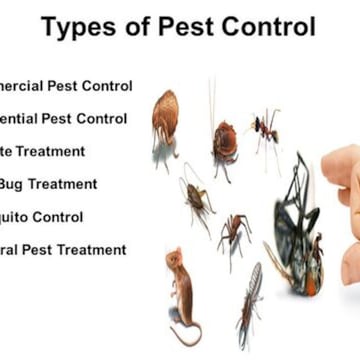Everything about Pest Control
Table of ContentsThe Buzz on Pest ControlThe Ultimate Guide To Pest ControlPest Control Can Be Fun For AnyonePest Control for BeginnersThe Pest Control Statements
Limitations of Chemical Management Have the ability to assess bug issues, establish if administration is necessary, and make proper recommendations making use of IPM strategies. Be acquainted with different methods of insect monitoring - their advantages and limitations. Comprehend the worth of beneficial insects. It is not possibleor also desirableto rid gardens of all insects.This phase reviews (IPM), an approach that utilizes understanding about bugs and their, methods, nonchemical approaches, and chemicals to handle insect troubles. Added information concerning IPM for particular plants is included in chapters that focus on those plants. Parasites in a yard or landscape might consist of bugs and termites, weeds,, mammals, and birds.
Many individuals rush to pull, hoe, or spray every weed they see. Pests and weeds, however, contribute in the. After planting a garden or establishing a lawn, the all-natural process of plant succession begins to restore and nonnative plants. A weed expanding in a grass stands for the initial stage in a sequence of occasions that, if enabled to proceed, can ultimately cause a forest.
What we call "pests" are component of a natural system at job. Only human beings think about particular species parasites when they take place where they are not wanted.
Not known Incorrect Statements About Pest Control
Pests prone to a pesticide were quickly eliminated, leaving resistant ones to breed and increase. It came to be clear that pesticides alone would certainly not address all insect problems. Rather, overuse of chemicals created the development of immune insects. Scientists began to establish a brand-new strategy to pest control. This brand-new strategy was described as incorporated parasite monitoring (IPM).
An IPM strategy allows some level of insects in the setting. Bugs are much less most likely to make it through a program that utilizes several techniques of minimizing their populaces. Integrated insect management was initial recommended by entomologists due to the fact that pests were the first team of bugs to show tough to handle with chemicals alone.
parasite and host precisely. and think about financial or visual injury. A threshold is the factor at which action must be taken. a therapy approach utilizing mechanical, social, organic, or chemical controls, or a combination of these approaches. success of treatments. IPM has actually expanded beyond bugs to monitoring of all pest populations: weeds, condition organisms, and mammals.
The Ultimate Guide To Pest Control
Administration instead than obliteration of pests is navigate to this website the goal. An IPM plan starts with a careful assessment of each parasite invasion.
Clover growing in a lawn may be seen as an undesirable weed, but as a bean it is manufacturing read more nitrogen for the soil and the blossoms are giving nectar to honey bees and other. Tolerance for some weeds may belong to an IPM strategy. may be consuming the fallen leaves of a plant, but when they are determined as the larvae of Eastern tiger swallowtail butterflies, their damage may be tolerated so we can take pleasure in the stunning butterfly.

The 2nd crucial device in insect monitoring is very early intervention. Existing and observant in the yard makes sure early discovery. Responding to problems rapidly, prior to they have time to multiply, requires a much less significant treatment. The third crucial device is recordkeeping; tracking what occurs in the garden allows a gardener to identify patterns and make educated choices.
Some Known Questions About Pest Control.
Lots of safe, functional, nonchemical techniques of plant defense and bug administration may decrease or get rid of the need to spray. Other approaches are most valuable when made use of with pesticides. To implement management practices appropriately and to decrease losses, garden enthusiasts ought to understand the kinds of pests that attack plants and understand pest biology.

Performing a soil test and using only the recommended quantity of fertilizer and lime makes the most of the advantage to the plant while lessening problems connected to extreme use fertilizer - Pest Control. Treatment the dirt with a number of inches of compost secures the plant in numerous ways: minimizing dirt water loss to dissipation, minimizing weed competition, providing nutrients, and producing an appropriate atmosphere for earthworms and bacteria that maintain the dirt loosened for origins and break down natural material to release nutrients
If mulch touches the trunk, it can develop a means for voles, microorganisms, and fungis to attack the plant. Do not use manure or garden compost that has not extensively decayed as a leading dressing since it can urge unfavorable bugs. Study recommends that tilling the soil is detrimental to dirt structure.
3 Easy Facts About Pest Control Explained
If tilling is regarded needed, think about doing it in the fall when the life process of lots of bugs brings them near the surface. At the surface, parasites end up being exposed to the climate along with birds and various other natural adversaries. Autumn tilling can also damage bugs in crop residues. Usage disease-free and insect-free qualified seeds and plants if offered.